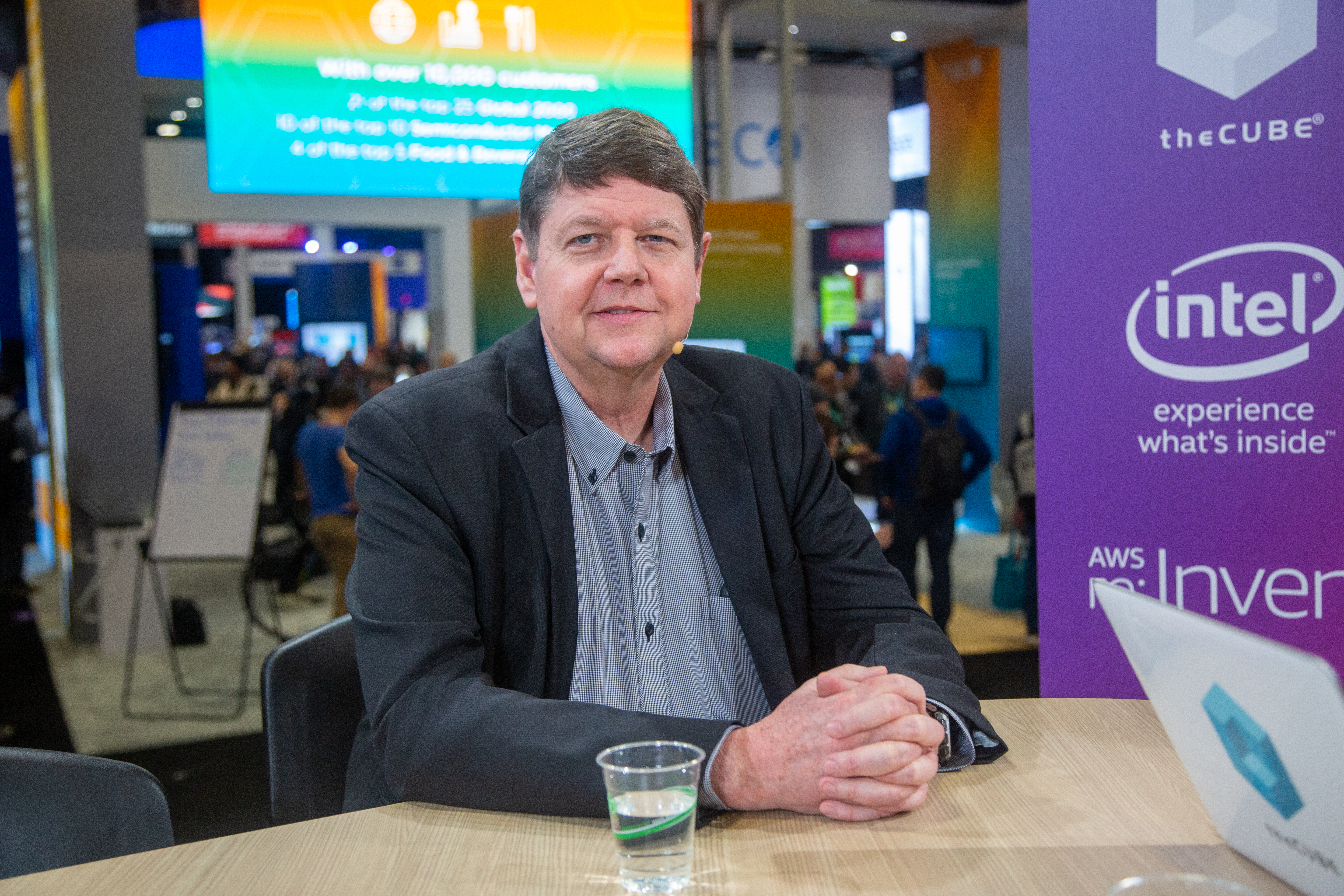 EMERGING TECH
EMERGING TECH
 EMERGING TECH
EMERGING TECH
 EMERGING TECH
EMERGING TECH
Seen as science fiction until recently, quantum computing may soon have practical use for businesses.
That’s the vision of Amazon Web Services Inc., now focused on applying this technology to solve consumers problems, according to Bill Vass (pictured), vice president of technology, storage, automation and messaging at AWS.
This week, the public cloud provider announced plans to launch a true quantum computing service. Amazon Braket will provide on-demand access to quantum systems from three emerging players in the supercomputing space, all in an effort to jumpstart enterprises’ familiarization with the technology to explore possible future applications.
“The problem we are solving with Braket is to get them to learn it as it is evolving, and be ready to continue to develop the environment,” Vass said. “And then also offer a lot of choices to customers. Amazon has always been big on choice.”
Once an algorithm is defined, Braket provides a fully managed simulation service to help troubleshoot and verify the implementation. And once an enterprise is ready, it can run its algorithm on a choice of different quantum computers, including gate-based superconductor computers from Rigetti, quantum annealing superconductor computers from D-Wave, and ion trap computers from IonQ.
Vass spoke with John Furrier and Dave Vellante, hosts of theCUBE, SiliconANGLE Media’s mobile livestreaming studio, during the AWS re:Invent event in Las Vegas. They discussed the latest news from the AWS quantum projects, the progress of this technology and the race in the quantum-computing industry. (* Disclosure below.)
Companies will be able to use quantum computing to solve certain types of mathematical and logical problems with breathtaking speed. For example, enterprises like Amazon, which make many truck deliveries every day, can use this technology to continually optimize its process, taking into account real-time variables, such as weather and traffic, according to Vass.
“A classic computer does those algorithms overnight for all delivery trucks and then sends them out to the trucks. The next morning they are driving around,” Vass said. “A quantum computer can do a best-fit algorithm like that much faster. And, so, you could have it every second providing that.”
But quantum computing is still in its early days, and there is much progress to be made. One point for improvement is error correction. Classic computers have built-in error-correction code with alpha particles that are flipping bits into their memory all of the time.
“We’re trying to build quantum computers with the proper error correction to handle these things,” Vass explained. “Because nothing runs perfectly, you just think it is perfect because we are doing all the error correction under the covers.”
Managing a physical environment like cryogenics is another challenge, according to Vass. “These machines generally operate in a cryogenic world, and they’re also heavily affected by electromagnetic radiation,” he said. “So, you have to sort of Faraday cage them in some cases, and other things like that.”
Despite the challenges, the technology will be ready for use sooner than expected. “You’re definitely talking in years. If you’d asked me two years ago how long it would take, I would’ve said decades,” Vass said. “There’s a lot of engineering problems, and we know how to do engineering problems.”
Here’s the complete video interview, part of SiliconANGLE’s and theCUBE’s coverage of AWS re:Invent. (* Disclosure: Amazon Web Services Inc. sponsored this segment of theCUBE. Neither AWS nor other sponsors have editorial control over content on theCUBE or SiliconANGLE.)
Support our mission to keep content open and free by engaging with theCUBE community. Join theCUBE’s Alumni Trust Network, where technology leaders connect, share intelligence and create opportunities.
Founded by tech visionaries John Furrier and Dave Vellante, SiliconANGLE Media has built a dynamic ecosystem of industry-leading digital media brands that reach 15+ million elite tech professionals. Our new proprietary theCUBE AI Video Cloud is breaking ground in audience interaction, leveraging theCUBEai.com neural network to help technology companies make data-driven decisions and stay at the forefront of industry conversations.